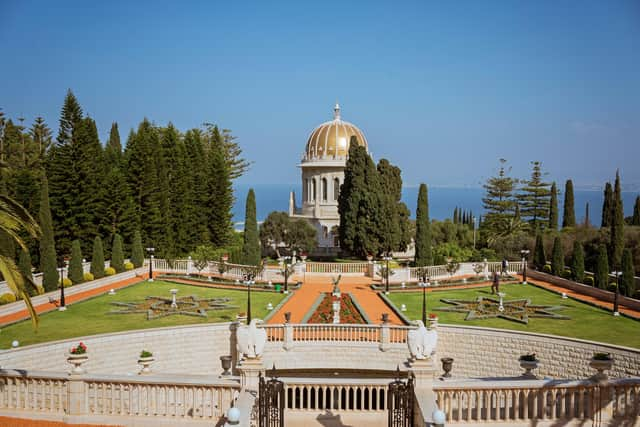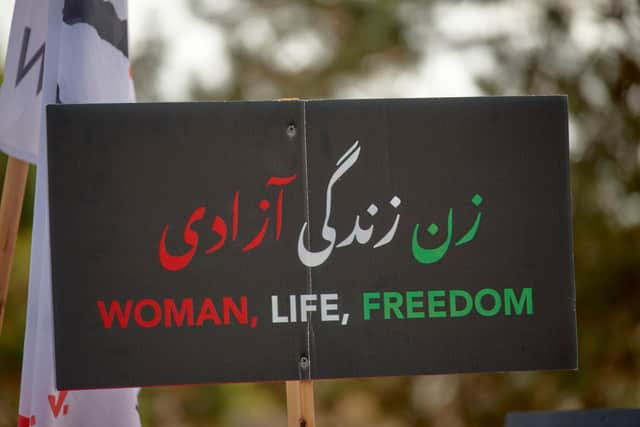Derry Bahá’ís to remember 10 women executed in 1983 as history continues to repeat itself
and live on Freeview channel 276
On June 18, 1983, Mona Mahmudnizhad (17), Nusrat Yalda'i (54), 'Izzat Janami Ishraqi (50), Roya Ishraqi (23), Tahirih Siyavushi (32), Zarrin Muqimi (28), Shirin Dalvand (25), Akhtar Sabit (19), Simin Saberi (24) and Mahshid Nirumand (28) were hanged in Chowgan-Square in Shiraz.
The atrocity was committed because the women refused to recant their faith. Aoife Smith, a Bahá’í from Derry, told the ‘Journal’ local Bahá’is will remember their sacrifice on Sunday.
Advertisement
Hide AdAdvertisement
Hide Ad“They had mainly been teaching children's classes. They were arrested and presented with documents to recant their faith and say they were no longer Bahá’ís. If they signed those documents it would have prevented their execution but they didn't,” she says.


The faith was founded by Baháʼu’lláh, a nobleman from Tehran in the 19th century.
Adherents believe in three onenesses of God, mankind and religion and equality between the sexes. Bahá’ís have long been persecuted across the Middle East and long before the Islamic revolution in Iran in 1979.
“Persecution of Bahá’ís in Iran is nothing new by any stretch of the imagination.
Advertisement
Hide AdAdvertisement
Hide Ad"Recently 17 Bahá’ís in Yemen were forcibly disappeared and again that is not an isolated incident. Bahá’ís have been arrested and tortured and all sorts in Yemen in recent times. It is not just in Iran.”


Aoife says the commemoration of the martyrs of 1983 will be particularly poignant given the women’s movement ongoing since 22-year-old Tehrani Mahsa Amini died in custody last September after being arrested for not wearing the hijab.
The fate of Mahsa resonates with Bahá’ís due to the example of Táhirih who was famous for removing her veil in the 1840s.
"It connects to the broader women's movement in Iran. If you come across Táhirih, one of the first Bábis [the Báb - was an important prophet of the religion], she was a very significant woman in Bahá’í history.
Advertisement
Hide AdAdvertisement
Hide Ad"She was also a very significant woman in the women's emancipation movement, a poet. She was also executed.
"Her words when she was about to be executed were: 'You can take my life but you can never stop the emancipation of women'.
"This is a core principle of the Bahá’í faith. I think of how Táhirih removed her veil and shocked the people of the day and how in 1983 those women were offered an opportunity to sign a document and save their lives but didn't to that.
"They had to watch one another being executed because they were executed one-by-one in front of one another.”
Advertisement
Hide AdAdvertisement
Hide AdAoife says there are echoes of 1983 in the way in which the wave of protests across Iran have been handled over the past year.
"There have been many people during these recent protests who have been executed because they won't give public confessions. Those women died for their choice to choose their own religion and women today are not being allowed to follow their own choices.
"The Bahá’í faith has a really strong belief that progress cannot occur until woman have equality and all of us are held back by this insistence on inequality. It is one of many prerequisites to unity and justice, the emancipation of women.”